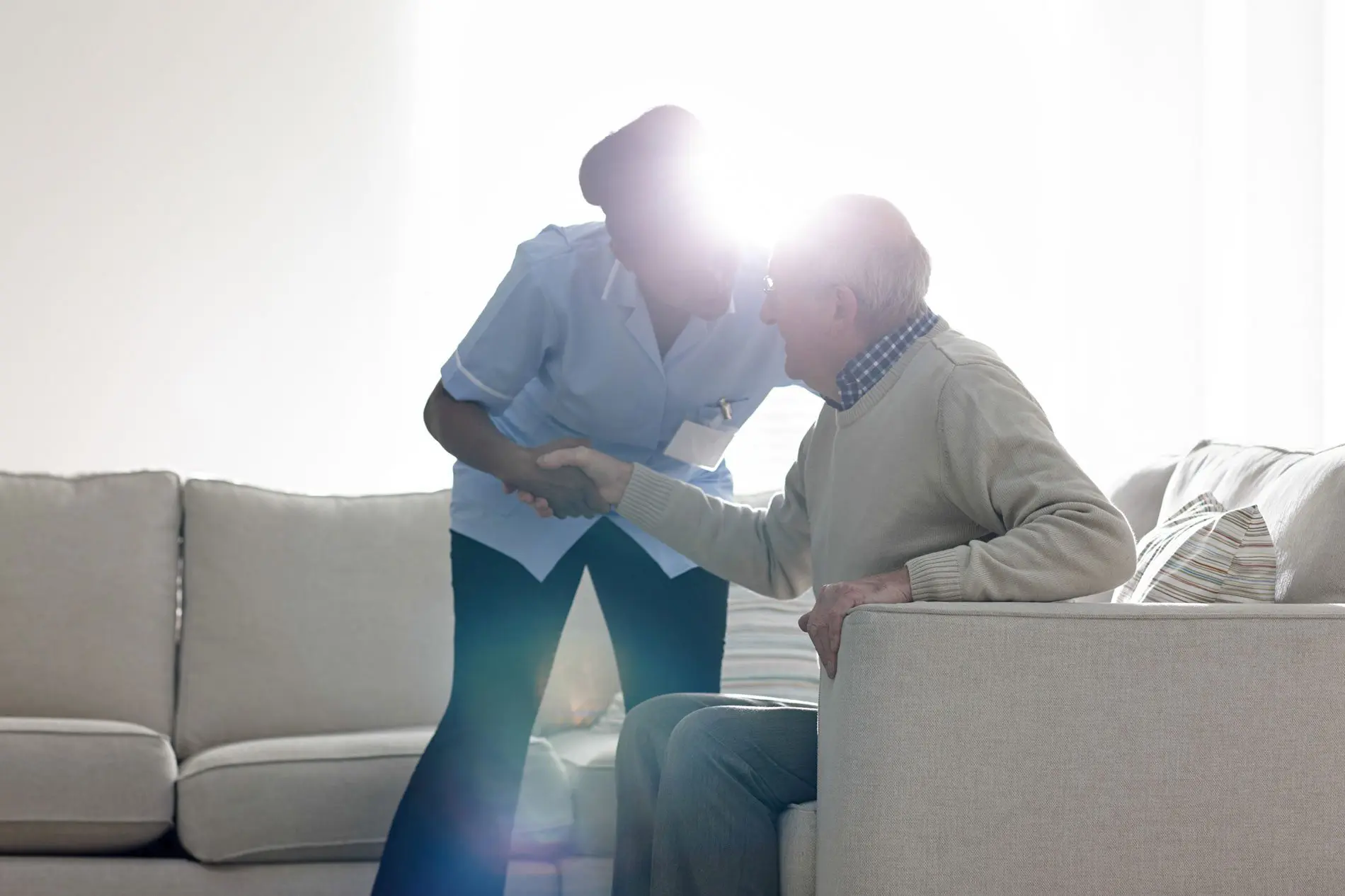Unnecessary Medications (survey tag F329) is a top ten regulatory citation in skilled nursing facilities. With antipsychotic use still high, pressure is on facilities to reduce their medications, particularly psychotropic medications.
One solution is to partner with a psychiatric provider to monitor medications and reduce behaviors. Encounter’s providers specialize in medication management and continuously monitor medications and review whether they can be reduced.
“[Our providers] really get them on, I always like to say, ‘the least amount of the right drugs,’” says Terri Ann Joy, Encounter Telehealth’s director of operations. “The ER or local provider may just put them on something to get them calmed down. Our providers are really going to work to get them on the right meds to give them quality of life and make sure that they’re safe in the facility.”
For anyone on psychotropic medications, says Katie Rall, director of facility relations, the goal is to gradually reduce the dosage.
“There’s rules or regulations which the… primary care physician… has to make sure they’re reviewing, and especially the psychotropic medications, those types of things that our prescribers would be using, and make sure that there’s a dosage reduction in them and if there’s not a dosage reduction as to why it’s contraindicated that they would reduce it.” Rall says.
“A lot of times, especially in the rural communities, they don’t have the psychiatric care that is needed… [We], being able to provide those services to them, can just help in general with a lot of their tags and making certain that things are being monitored, that they aren’t having residents who are on way too much medication… they can’t even talk, they can’t even function, their medication level is so high that they’re sedated.” Rall says.
Collaboration
Collaboration with Encounter goes “from the providers to the residents and then to the nursing homes themselves,” says Rall.
Keeping “open lines of communication” are crucial to keeping everyone on the same page, says Rall.
“Every single time that [our providers] are meeting with a nursing home resident, they’re collaborating with the facility staff to discuss and review behaviors, significant changes in the resident’s life, and concerns that they may have—every single time that they see a resident, there’s collaboration between the two,” says Rall.
Dr. Randy Beckett, PMHNP-BC, says that collaboration with an Encounter provider reduces stress for facility staff.
“With proper care and follow-up, since the facilities know that they can get a hold of our providers in case of an emergency… then that gives them a… sense of comfort that they can reach out to somebody, after they’ve tried everything that they know how to do.” Beckett says.
Initial Assessments
Encounter can also help with initial assessments and PASSRs with initial visits for residents who need behavioral health care.
“Any time [facilities] let us know that they have a Level II, our providers are aware of the requirements and know to write an appropriate note and a goals set for the care, to see the patient progress,” says Joy.
Reduced Emergency Department Visits
Another benefit of partnering with Encounter is reduced emergency department visits. Instead of sending a resident with a behavioral health problem to the emergency department, facility staff can fall back on Encounter providers, who are available to staff at skilled nursing facilities outside normal business hours. Rather than going to the emergency room, staff can contact the provider during an emergency and determine a plan of action.
“Where, previously, they may have just sent the patient to the ER because they didn’t know, they might be able to call our provider Friday evening and put a plan in place to get that patient through in place,” says Joy.
That’s a good thing, since emergency departments often send behavioral patients back home, not knowing what to do with them, says Rall.
“They’ll tell them, you deal with them at home, you have to figure it out yourself.” Rall says.
Staff Training and Support
Staff training is also offered to help staff work with both residents and other staff members.
“The better prepared staff are to handle behaviors and patients’ mental health issues, then the more they’re going to be in compliance,” Joy says. “Our providers are also available outside of those patient appointments to staff, if they have questions about care for the patient or they have a new behavior or something, they can communicate with them then as well.”
Encounter also ensures that all records and care plans are sent to facilities.
“When [surveyors] do come in to do a survey, [staff] are not fishing around for them,” Rall says.
Encounter providers can help facilities stay in compliance with not only Unnecessary Medications, but also F470: Behavioral Health Services and F472: Mental Health Treatment.
To read more about other common citations under the new system, visit https://www.mcknights.com/news/we-have-to-do-better-on-infection-prevention-cms-official-tells-ltc-nurse-managers-during-new-survey-update/article/777088/.
Katherine Hartner is Encounter Telehealth’s Social Media and Marketing Intern. She is studying journalism, with a concentration in PR and advertising, at UNO. She has written multiple articles for the Gateway, UNO’s student-run newspaper, and is active with MavRadio, UNO’s college radio station. In her free time, she enjoys writing fiction, gardening, and volunteering.


